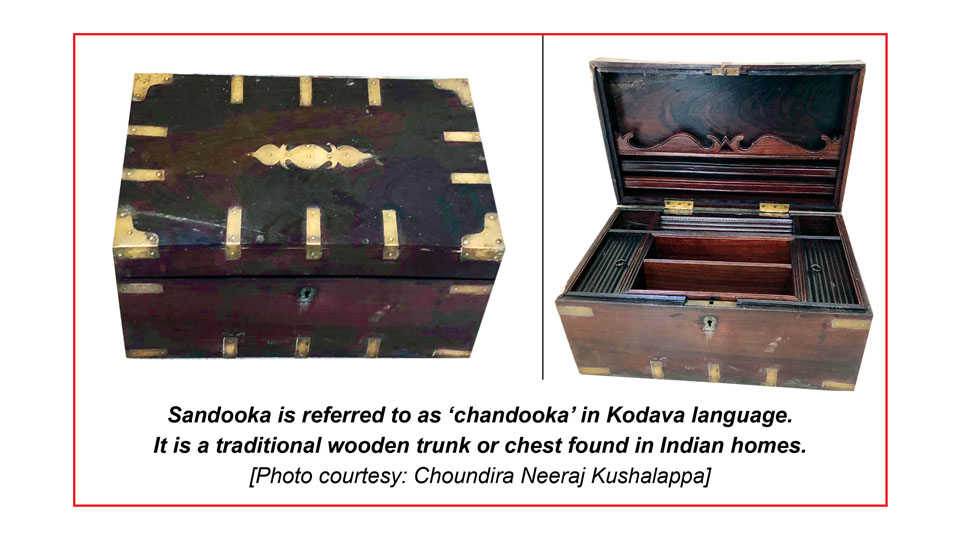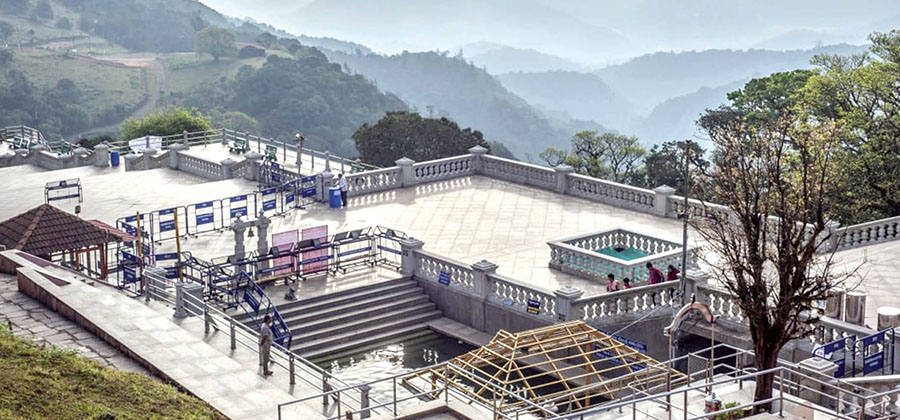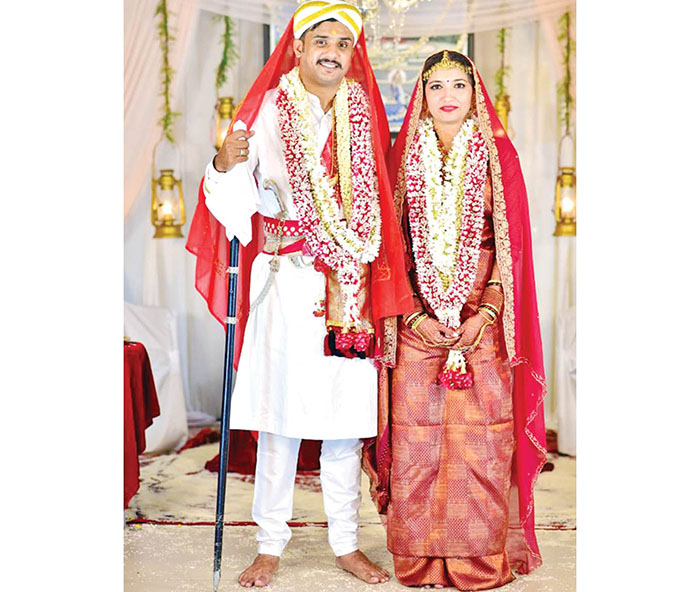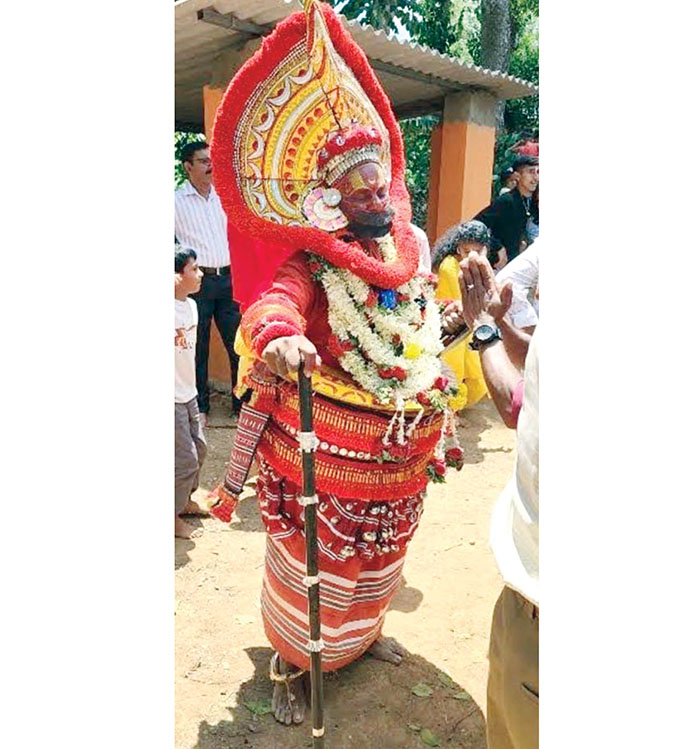
Sandooka Virtual Museum of Kodava Heritage and Culture, an informative and interactive platform for the community, the diaspora, researchers and knowledge-seekers, has been launched. One can access it on https://sandookamuseum.org/
The museum has been created with community participation and on the basis of research on existing knowledge of the history of Kodagu, traditions of the Kodava community and unique practices.
Presently, the museum boasts 54 stories categorised into nine themes:
Architecture, Arts and Crafts, Community Histories, Clothes and Jewellery, Cuisine, Customs and Rituals, Festivals, Landscape, Literature and Folklore. The website also includes a glossary of commonly used Kodava terms and a list of recommended books and website resources.
Within the museum’s pages, visitors can explore a brief history of Kodagu in sections like ‘Residences of the Royals’ and the glossary. An outline map in the glossary provides context, illustrating the taluks of Kodagu, its location within Karnataka and its place in India.
The brain behind this ambitious project is Rathi Vinay Jha (Codanda), the erstwhile Chair of the India Foundation for the Arts (IFA). A retired 1967 batch IAS Officer, she served as the Secretary in the Ministry of Tourism, Government of India. In early 2022, IFA issued a call for proposals from multidisciplinary teams to develop the virtual museum.

Stringent scrutiny
Numerous teams from various parts of India submitted their proposals.
The selection process involved the scrutiny of an esteemed jury, including Paul Abraham (Founder of Sarmaya Arts Foundation), Nick Merriman (Director of Horniman Museums and Gardens, London), Sara Ahmed (Founder of Living Waters Museum), Venu Vasudevan, IAS (former Director General of the National Museum) and Hemanth Satyanarayana (CEO, Imaginate).
Following a meticulous evaluation of presentations and interviews, a team led by art museum curator Lina Vincent emerged as the chosen one for the project. The team comprised the dynamic designer duo Upasana Nattoji Roy and Saurav Roy from SWITCH. I was honoured to be invited to spearhead the Research and Coordination for Virtual Museum.
Our team came together in early 2022 and the ensuing two years have been both hectic and gratifying. Our efforts were complemented by a dedicated group handling media resources, including Aiyuda Prasad Ponnappa (videography), Clare Arni (photography), Kalpit Gaonkar (drone videography), Kunjiyanda Mahesh Appaiah aka Max Machu (videography), Chenanda Rohan Ponnaiah (videography), G.S. Bhavani (photography), Dr. Bishan Monnappa (photography) and others. Hasan Shahrukh spearheaded website development, with Samarth Gulati focusing on the front end and Gaurav Nagar on the back end. Additional support came from associates such as Nitya Devayya, Dhriti Belliappa, Nigel Gomes and Christina Dedhia.
The IFA team overseeing the project included former Executive Director Arundhati Ghosh, Executive Director Menaka Rodriguez, members Darshana Dave, Ritwika Misra and C. Suresh Kumar
IFA Advisory Board, consisting of Rathi Vinay Jha, Cheppudira P. Belliappa and Hemanth Satyanarayana, provided valuable guidance.
The editorial advisors, namely Dr. Boverianda Nanjamma Chinnappa, Cheppudira P. Belliappa, Dr. Kodira Monnappa Lokesh and Dr. C.C. Sowmya Dechamma, contributed expertise to the project.
Recaero India predominantly funded the initiative, while Anuraag, a Virajpet-based NGO, played a crucial role in supporting payments to artists, folk singers, dancers, craftsmen and facilitating media documentation.

A comprehensive repository of information
The Sandooka Virtual Museum of Kodava Heritage and Culture stands as a comprehensive repository of information on Kodavas. In the Kodava language, a ‘sandooka’ is referred to as ‘chandooka’, akin to a traditional wooden trunk or chest found in Indian homes.
Our documentation efforts included capturing the ‘Kail Podh’ festival of weapons at the Baduvamanda ancestral house in Kavadi, festival sports at Puliyeri village green near Ammathi, the harvest festival ‘Puthari’ at the Padeyanda ancestral house, festival dances at Biddatanda Vaade and Kokeri Bhagwathy temple, and the annual ‘theray’ (a shaman ritual of Kodagu similar to ‘theyyam’ and ‘kola’) at the Nadikerianda ancestral house in Karada
While a substantial population of Kodavas still resides in Kodagu, tens of thousands have migrated to places like Mysuru and Bengaluru. Additionally, Kodava diaspora is seen outside Karnataka in various parts of India and extending to international locations such as Singapore, the Middle East, Europe, the United Kingdom, Africa, Australia and the Americas.

To maintain cultural connections, Kodavas have established regional Kootas or Associations, where members gather annually, often during festivals. Kodava Samajas in villages, towns and cities organise Kodava weddings and other social events.
However, the Kodava diaspora faces challenges in preserving their native language and culture. As generations pass, certain traditions risk fading away. Recognising this need for preservation, Sandooka Virtual Museum of Kodava Heritage and Culture acts as a bridge, documenting and safeguarding cultural heritage for future generations worldwide.
Cherishing our legacy
Kodavas are a small community with a vibrant heritage and unique traditions. Kodagu and the Kodavas have always raised the curiosity of not just our own people but of scholars and visitors across the world. Today, with access to technology we can send a message across to our diaspora and the world about our land and its culture. Sandooka Virtual Museum is a repository of such online information on Kodava heritage. Let us cherish our legacy and celebrate our achievements. — Rathi Vinay Jha (Codanda), erstwhile Chair of the India Foundation for the Arts (IFA)
source: http://www.starofmysore.com / Star of Mysore / Home> Feature Articles / by Mookonda Nitin Kushalappa / January 09th, 2024

